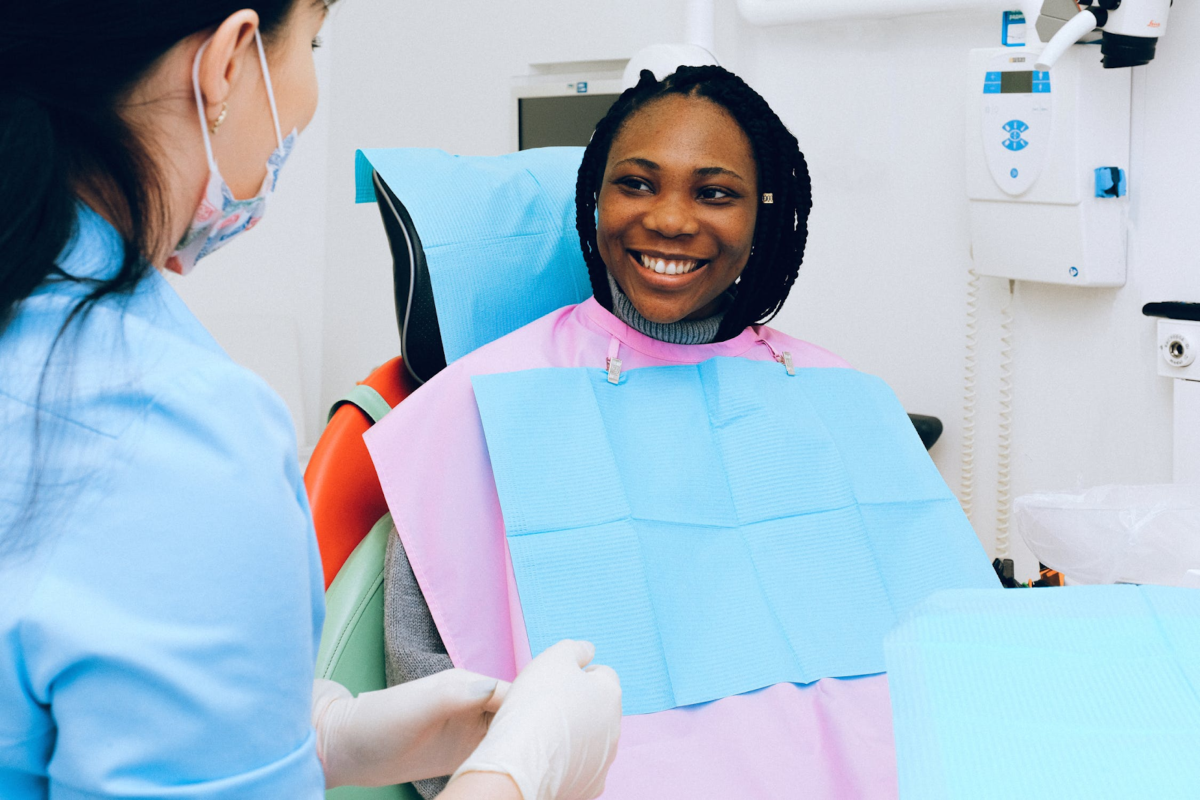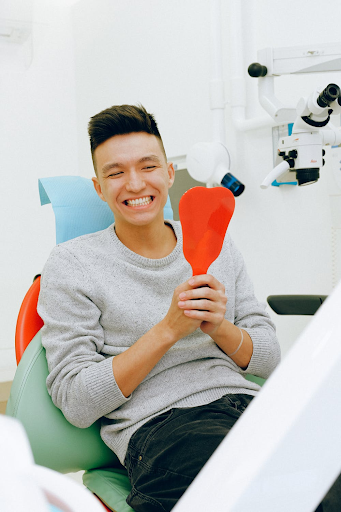Exciting news here at Yew Tree Dental Care and Implant Centre! We are delighted to have acquired a new, state-of-the-art CBCT (Cone Beam Computed Tomography) scanner. It has us smiling, and will be keeping our patients smiling too! Read on to find out more.
What Is A CBCT Scanner?
A CBCT scanner is a diagnostic tool, which means that it is a piece of equipment used to identify any problems that you may be having with your oral health. It can then help your dentist decide on the best course of action for you.
The scanner will take images of your teeth, soft tissues, bone and nerve pathways in one single scan. This gives your dentist a more in-depth, detailed view of your oral health, meaning that they can provide a more accurate diagnosis and a more effective treatment!
What Is A CBCT Scanner Used For?
A CBCT scanner is used to create a 3D image of your mouth. This allows your dentist to examine your jaw, teeth and bones, as well as your soft tissue.
- Your dentist may suggest that you have a CBCT scan for a multitude of reasons, including:
- Dental implant planning and placement
- Periodontal disease
- Diagnosis and detection of infections and tumours
- Orthodontic treatment
- Oral surgery
- Complex endodontic cases
CBCT Scans And Dental Implants
One of the most common reasons for having a CBCT scan is for dental implants.
The scan will help our dentists gain a more complete view of your teeth, jaw and soft tissue. This influences the success of the implant procedure, making such treatments even smoother than ever before.
What Are The Benefits Of Using A CBCT Scanner?
As stated above, using a CBCT scanner to help with an implant procedure achieves optimal results. However, it isn’t just useful for the dentist, it can also give you a better understanding of the procedure. Whether to put your mind at ease, or just to satiate your curiosity, the scan will improve your overall treatment experience.
The level of detail provided by a CBCT scanner also helps to reduce the potential risks associated with treatments and increases their efficacy.
All necessary images can be collected in one quick and easy appointment.
What Is Having A Scan Like?
When you come in for a scan you will be asked to take a seat. Your dentist may position you slightly, to ensure that your head is in the right place. The CBCT scanner will then pan around you, creating the 3D image.
Unlike an MRI scan, a CBCT scan only needs to take images of your head, so you will not be in a full body machine. The experience of having a CBCT scan is more similar to a CT scan in which just your head is scanned. However, unlike a CT scan, you will not be lying down. This helps to avoid claustrophobia.
What If I Struggle With Claustrophobia?
As mentioned above, due to the CBCT scan being centred around the head, and the patient able to stay seated throughout, claustrophobia is easier to manage.
However, if you have found that being in a small space often elicits anxiety, we suggest that you let us know. This allows the member of staff conducting your scan to support you at every stage. They will talk you through the process step by step and offer reassurance.
Additionally, the scan will take less than one minute, so any unease you may feel will be very short term!
Are There Any Risks Involved?
One of the many great things about CBCT scans is that they are minimally invasive – having a scan will not be painful or in any way difficult.
The only thing of note is that a CBCT scan will expose you to some radiation. The level of radiation that you would be exposed to is higher than your typical X-ray, however, it is lower than a CT scan, and is therefore nothing to worry about.
How Do I Prepare For My Scan?
Do not worry! You don’t need to do anything to prepare for your scan. Just get yourself booked in and we will take care of the rest.
Yew Tree Dental and Implant Centre
If you would like to contact us about a treatment, or you have any further questions about our use of CBCT scanners, please either email [email protected] or call us on 01753 522 500.






